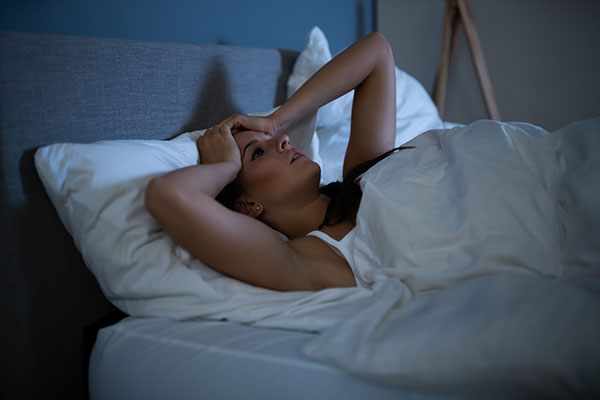How Menopause Can Impact Sleep

Menopause is a significant life transition for women, marked by the end of menstrual cycles and a decrease in reproductive hormones. While it’s a natural part of aging, menopause can bring about various symptoms that impact daily life, including sleep disturbances. At North Pointe OB/GYN in Cumming, we recognize the challenges menopause presents to restful sleep and are committed to helping our patients find effective solutions. Here’s how menopause can affect your sleep and what you can do about it.
Sleep Symptoms During Menopause
Many women experience sleep issues during menopause due to a combination of physical and hormonal changes. Common sleep-related symptoms include:
- Insomnia: Difficulty falling asleep or staying asleep is common during menopause. Insomnia can be exacerbated by stress, lifestyle factors, and other menopause-related symptoms.
- Night Sweats: Hot flashes that occur during the night, known as night sweats, can disrupt sleep, leading to frequent awakenings and difficulty returning to sleep.
- Restless Leg Syndrome (RLS): Some women develop or experience worsened symptoms of RLS during menopause, which can cause uncomfortable sensations in the legs and an irresistible urge to move them, particularly during the night.
- Sleep Apnea: The risk of sleep apnea increases during and after menopause. Changes in hormone levels can lead to weight gain and changes in fat distribution, contributing to the development of this sleep disorder.
Why Sleep Is Affected
The primary reason sleep is affected during menopause is the fluctuation and eventual decline in reproductive hormones, particularly estrogen and progesterone. These hormones influence sleep patterns and mood, and their reduction can lead to the symptoms described above. Additionally, the physical changes of menopause, combined with the stress and emotional shifts that can accompany this stage of life, contribute to sleep disturbances.
Menopause Treatment Options in Cumming
At North Pointe OB/GYN, we offer a range of treatment options to help manage sleep disturbances during menopause:
- Hormone Replacement Therapy (HRT): HRT can alleviate many menopausal symptoms, including hot flashes and night sweats, thereby improving sleep. However, HRT is not suitable for everyone. We will discuss your medical history, risks, and benefits to determine if HRT is a viable option for you.
- Lifestyle Modifications: Simple changes can significantly impact sleep quality. Establishing a regular sleep schedule, creating a comfortable and cool sleep environment, and avoiding caffeine and alcohol close to bedtime can help improve sleep.
- Stress Management: Techniques such as deep breathing, meditation, and yoga can reduce stress and improve sleep. Cognitive-behavioral therapy (CBT) can also be effective in treating insomnia related to menopause.
- Diet and Exercise: Maintaining a balanced diet and regular exercise routine can help manage menopause symptoms and improve sleep. Certain foods can trigger hot flashes and night sweats, so identifying and avoiding these can be beneficial.
- Medications and Supplements: Certain medications and natural supplements can help improve sleep during menopause. Low-dose antidepressants, for example, can reduce hot flashes, while supplements like melatonin may help regulate sleep cycles. Always consult with your healthcare provider before starting any new medication or supplement.
Get the Support You Need
If you’re struggling with sleep disturbances during menopause, you don’t have to face it alone. The team at North Pointe OB/GYN in Cumming is here to support you through this transition. We’ll work with you to identify the underlying causes of your sleep issues and develop a personalized treatment plan to help you find relief and enjoy restful nights once again.
Remember, every woman’s experience with menopause is unique. By addressing sleep disturbances and other menopausal symptoms, you can maintain your quality of life and continue to thrive during this new stage. Contact North Pointe OB/GYN today to schedule a consultation and start on the path to better sleep and overall well-being.


